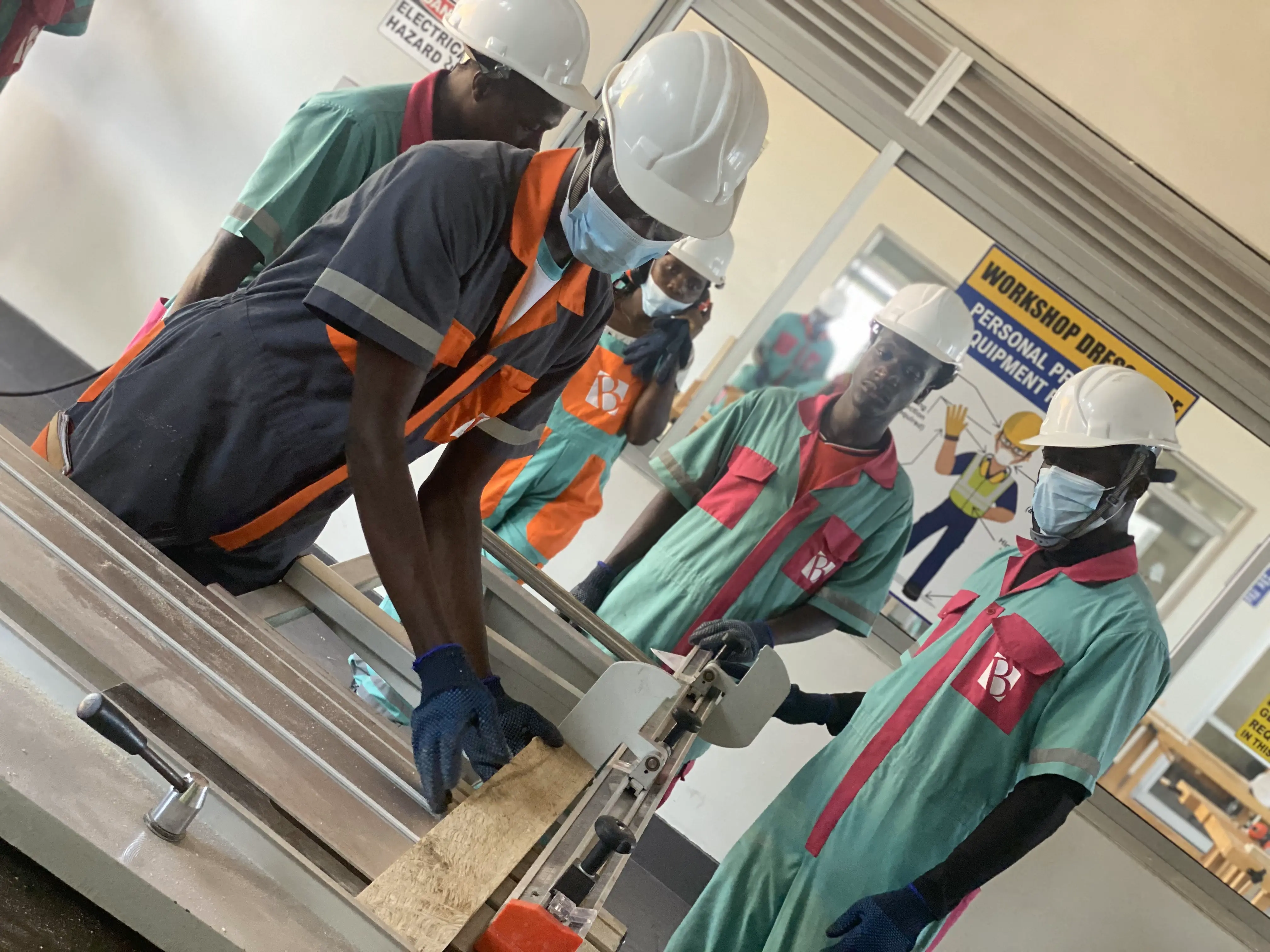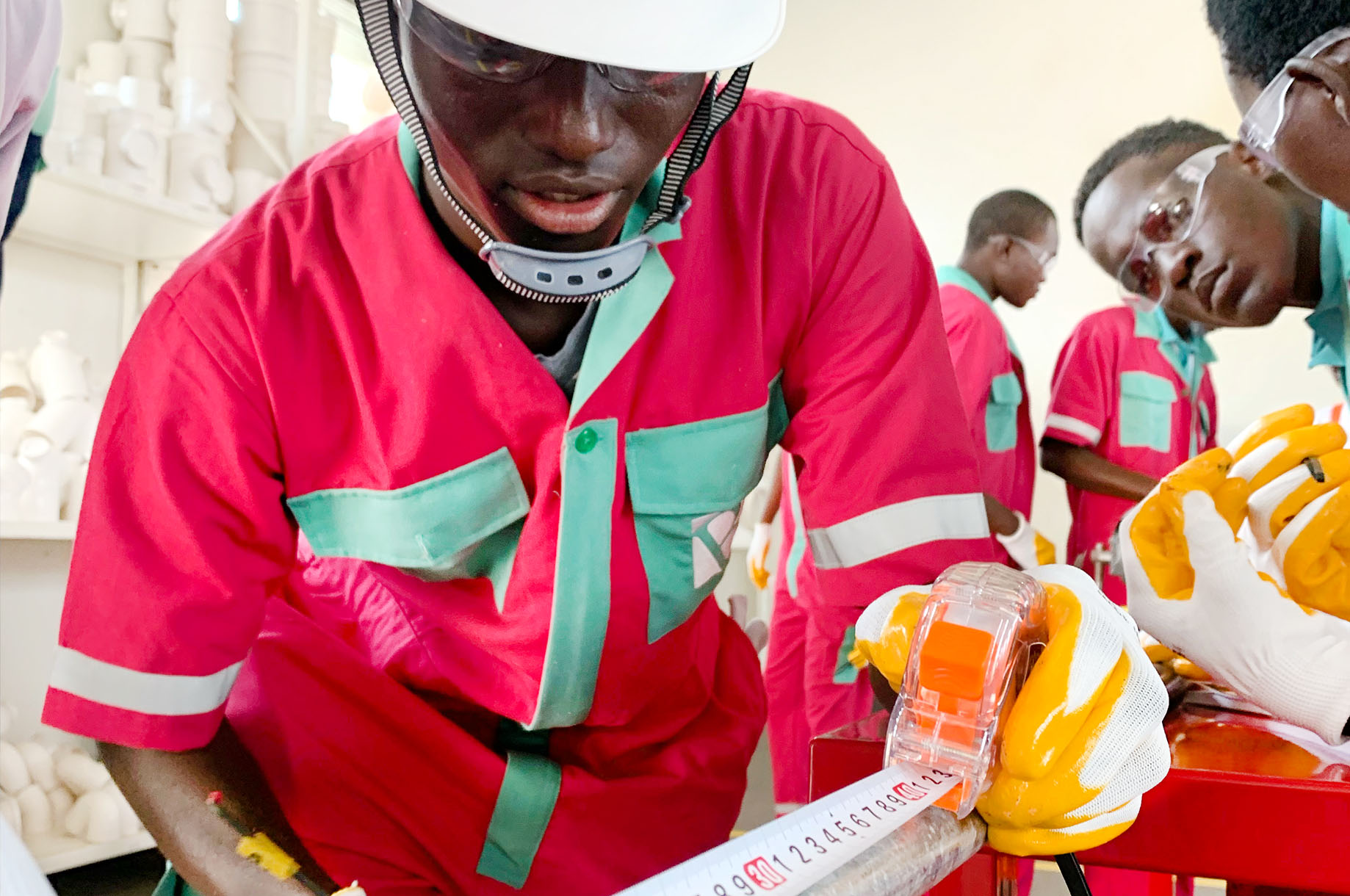Engineering vs. Construction: Which Path is Right for You?
What Does Each Path Involve?
Engineering Technicians:Engineering technicians are problem solvers who work directly with engineers to bring ideas and designs to life. They focus on maintaining and improving systems and machinery, ensuring that everything runs efficiently. If you're someone who enjoys working with technology, solving complex issues, and being involved in the technical details of projects, a career as an engineering technician might be the perfect fit.
-
Examples of Work: Repairing and maintaining industrial machines, ensuring quality control in manufacturing processes, or installing and maintaining renewable energy systems.
-
Skills Needed: Strong analytical skills, attention to detail, and a solid understanding of mechanical and electrical systems.
Construction Technicians:On the other hand, construction technicians are the hands-on builders of the world. They take the designs and plans created by architects and engineers and make them a reality. If you prefer working outdoors, using your hands, and seeing tangible results from your efforts, a career in construction might be more appealing.
-
Examples of Work: Assisting in managing construction sites, performing skilled trades like carpentry or joinery, or supervising construction projects to ensure they meet quality standards.
-
Skills Needed: Practical problem-solving skills, strong teamwork abilities, and a good grasp of construction techniques and safety protocols.
Key Trends in Engineering and Construction Education
As both fields continue to evolve, so does the education that prepares students for these careers. Here are some of the key trends that are shaping the future of engineering and construction education, particularly in Africa and the GCC region:
1. Increased Focus on Technical Training:The demand for skilled technicians is on the rise, and educational institutions are responding by enhancing their technical training programs. In regions like Africa, where infrastructure development is booming, there is a significant push to equip students with the skills needed to support this growth. Similarly, in the GCC, countries are investing heavily in vocational training to support their ambitious infrastructure and energy projects.
2. Emphasis on Sustainable Practices:Sustainability is becoming a central theme in both engineering and construction. Educational programs are increasingly incorporating green technologies and sustainable practices into their curricula. For example, students are now learning how to install and maintain renewable energy systems or how to construct buildings that are energy-efficient and environmentally friendly.
3. Digital Integration in Education:The rise of digital tools in engineering and construction education is another significant trend. From using software to design and simulate projects to learning how to operate advanced machinery, students are getting hands-on experience with the technologies that are driving these industries forward.
Which Path is Right for You?
Consider a Career in Engineering If:
-
You enjoy working with machines, technology, and systems.
-
Problem-solving excites you, especially when it involves technical challenges.
-
You’re interested in careers that involve maintaining and improving the efficiency of systems.
Consider a Career in Construction If:
-
You prefer hands-on work where you can see the results of your labor.
-
You enjoy working in dynamic environments, often outdoors, and thrive on teamwork.
-
You’re interested in building and creating structures, from homes to infrastructure.
Conclusion
Choosing between engineering and construction depends on your interests, strengths, and career goals. Both fields offer rewarding careers where you can make a real difference. At BIP, our programs are designed to give you the skills and experience needed to succeed in either field, with a strong focus on practical training that makes you job-ready from day one.
Ready to Make Your Choice?Explore our programs and find the path that's right for you.
Register to start your journey in engineering or construction with BIP.
If you're considering a career as a technician in the engineering or construction fields, you're already on the path to joining industries that are critical to the growth and development of societies around the world. But how do you decide which path is right for you? At Busoga International Polytechnic (BIP), we understand that choosing the right career path is crucial, and we're here to help you make an informed decision.
What Does Each Path Involve?
Engineering Technicians:Engineering technicians are problem solvers who work directly with engineers to bring ideas and designs to life. They focus on maintaining and improving systems and machinery, ensuring that everything runs efficiently. If you're someone who enjoys working with technology, solving complex issues, and being involved in the technical details of projects, a career as an engineering technician might be the perfect fit.
-
Examples of Work: Repairing and maintaining industrial machines, ensuring quality control in manufacturing processes, or installing and maintaining renewable energy systems.
-
Skills Needed: Strong analytical skills, attention to detail, and a solid understanding of mechanical and electrical systems.
Construction Technicians:On the other hand, construction technicians are the hands-on builders of the world. They take the designs and plans created by architects and engineers and make them a reality. If you prefer working outdoors, using your hands, and seeing tangible results from your efforts, a career in construction might be more appealing.
-
Examples of Work: Assisting in managing construction sites, performing skilled trades like carpentry or joinery, or supervising construction projects to ensure they meet quality standards.
-
Skills Needed: Practical problem-solving skills, strong teamwork abilities, and a good grasp of construction techniques and safety protocols.
Key Trends in Engineering and Construction Education
As both fields continue to evolve, so does the education that prepares students for these careers. Here are some of the key trends that are shaping the future of engineering and construction education, particularly in Africa and the GCC region:
1. Increased Focus on Technical Training:The demand for skilled technicians is on the rise, and educational institutions are responding by enhancing their technical training programs. In regions like Africa, where infrastructure development is booming, there is a significant push to equip students with the skills needed to support this growth. Similarly, in the GCC, countries are investing heavily in vocational training to support their ambitious infrastructure and energy projects.
2. Emphasis on Sustainable Practices:Sustainability is becoming a central theme in both engineering and construction. Educational programs are increasingly incorporating green technologies and sustainable practices into their curricula. For example, students are now learning how to install and maintain renewable energy systems or how to construct buildings that are energy-efficient and environmentally friendly.
3. Digital Integration in Education:The rise of digital tools in engineering and construction education is another significant trend. From using software to design and simulate projects to learning how to operate advanced machinery, students are getting hands-on experience with the technologies that are driving these industries forward.
Which Path is Right for You?
Consider a Career in Engineering If:
-
You enjoy working with machines, technology, and systems.
-
Problem-solving excites you, especially when it involves technical challenges.
-
You’re interested in careers that involve maintaining and improving the efficiency of systems.
Consider a Career in Construction If:
-
You prefer hands-on work where you can see the results of your labor.
-
You enjoy working in dynamic environments, often outdoors, and thrive on teamwork.
-
You’re interested in building and creating structures, from homes to infrastructure.
Conclusion
Choosing between engineering and construction depends on your interests, strengths, and career goals. Both fields offer rewarding careers where you can make a real difference. At BIP, our programs are designed to give you the skills and experience needed to succeed in either field, with a strong focus on practical training that makes you job-ready from day one.
Ready to Make Your Choice?Explore our programs and find the path that's right for you.
Register today to start your journey in engineering or construction with BIP.



